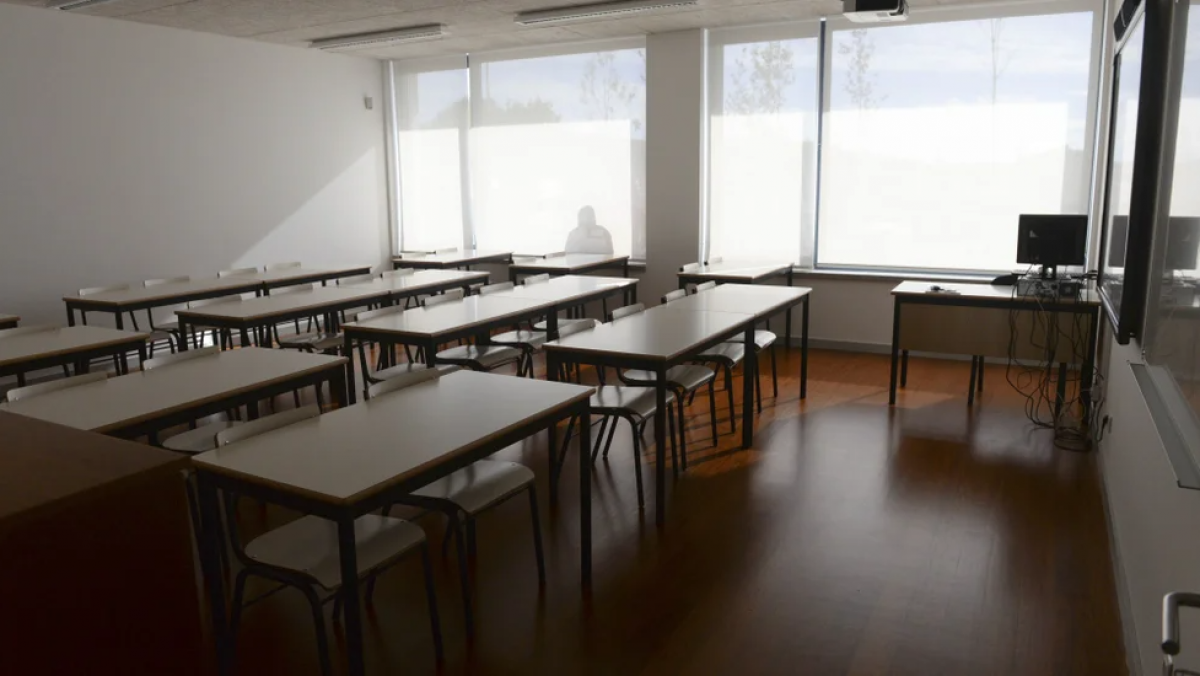A study revealed that high teacher turnover affects more schools in need
Teacher turnover is ‘high’ and ‘alarming’ in Portugal, according to a national study that reveals that the most disadvantaged socioeconomic schools are the ones teachers are unwilling to achieve.
“The average turnover is high,” Pedro Freitas, a researcher from the Center for Education Economics at the Nova School of Business and Economics (Nova SBE), told Lusa, who has analyzed the situation of kindergarten teachers and teachers from the start. From first to twelfth grade over a decade.
Between 2008/2009 and 2017/2018, the average turnover rate for all groups ranged between 17% and 36%, according to the “Teacher Turnover in Portuguese Public Schools” study.
These rates include cases such as those recorded in 2009/2010: in September 2009, one in 10 groups started the school year with more than half of teachers entering school for the first time.
In the 2017/2018 school year, Pedro Freitas added in Lusa’s remarks: “More than 90% of schools had a turnover rate of more than 20%, that is, more than one in five teachers changed from year to year.”
The vast majority of these teachers are hired, but there are also many staff teachers who take advantage of internal recruitment competitions, which are held every four years, to change schools.
In educational institutions from the most disadvantaged socioeconomic backgrounds, there are more teachers who want to change schools, according to the study.
The researchers found that turnover is higher in schools where there are more ASE recipients, where students have lower grades and parents have less education. In these schools, it is difficult to attract and retain teachers.
In schools with more needy students and with ASE rights, teacher turnover is 35%. In schools with less needy students, the percentage drops to 27%.
This difference can also be seen when comparing the education of parents of students: in schools where the education of mothers is at least compulsory, the turnover rate is 27%, while in groups with less educated parents it rises to 37%.
There are also more teachers trying to leave schools where students get worse grades, according to another comparison of groups with best and worst average scores on national tests from grade 4 to grade 12.
In the best-scoring groups, average turnover is about three percentage points lower than the turnover in the worst-scoring groups: among fourth-graders, for example, turnover was 23% in schools with the best grades and 27% in schools with Worst rates.
In the study, the researchers cautioned against “alarming” levels of staff turnover, as it “has a negative impact on students already in more challenging contexts.”
Pedro Freitas explained that this relationship between rate of change and academic success is based on international studies that have analyzed other educational systems, such as North America or the United Kingdom.
The teacher’s time at school, he said, means that he knows this reality and is used in context, as opposed to the arrival of a new teacher “who has to get used to and adapt to it because everything is new.”
Therefore, Pedro Freitas emphasized, it is important to implement measures that will attract teachers, and also the current recruitment policies should be changed in order to increase the stability of the teaching staff in Portuguese public schools.
The specialist noted that, currently, there are no incentives or differences between teachers who are in a somewhat favored school: “Being in a somewhat disadvantaged school, from a professional and contractual point of view, is exactly the same thing.”
Pedro Freitas referred to the case of the United Kingdom, where policies have been implemented to attract teachers to schools in the most disadvantaged contexts, and the most effective have been financial.
He said that salary increases, changes in working hours and contractual stability were among the incentives that “succeeded in attracting more teachers” in some contexts, recalling another study by the NovaSBE team this year.
Paulo Freitas revealed that the team of researchers will now advance a new study to try to understand how teacher turnover affects students’ academic success.

“Writer. Analyst. Avid travel maven. Devoted twitter guru. Unapologetic pop culture expert. General zombie enthusiast.”

